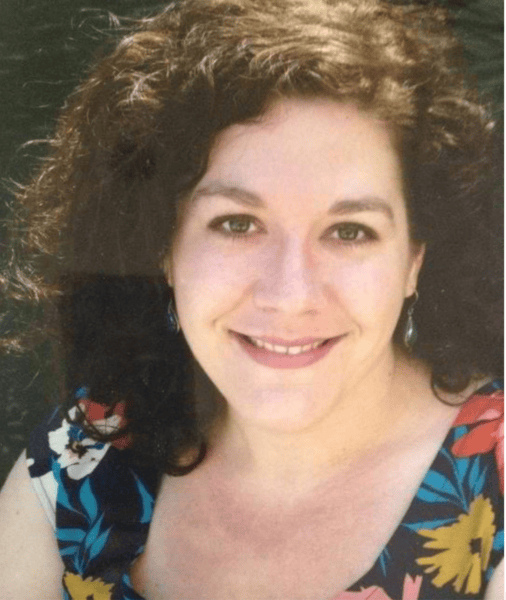Rebecca Simon is an adjunct professor at Santa Monica College. She lives in Los Angeles, California, and has been a member since 2015.

Website: https://rebecca-simon.com
Twitter: @beckalex
Alma maters: BA, University of San Francisco, 2007; MA, California State University, Northridge, 2010; PhD, King’s College London, 2017
Fields of interest: piracy, early modern Atlantic, early modern Britain, early modern Caribbean, gender, slavery
Describe your career path. What led you to where you are today?
My favorite subject in school was always history, so it was a natural progression that I would pick it as my college major. I was initially interested in ancient and classical history, but then I took an early modern history class and I was hooked on the time period. I always had a goal to go to graduate school, so I applied for a master’s program at California State University, Northridge. They had just introduced Atlantic history, which I loved. We read the book Villains of All Nations: Atlantic Pirates of the Golden Age by Marcus Rediker and it totally blew me away, so I decided to research perceptions of piracy for my MA thesis. I decided I wanted to continue my studies, so I applied to doctorate programs in London because I wanted the experience of living abroad and I knew most of my sources woud be there. I was accepted to King’s College London and I wrote my doctorate about public executions of pirates in the 17th and 18th centuries. I got very active on Twitter, which led to public history opportunities, such as being interviewed for a BBC documentary. I presented at as many conferences as I could, which was a great way to meet other historians and make valuable connections. After graduating, I taught humanities full time at a private school and participated in several podcasts such as You’re Dead to Me and Getting Curious with Jonathan Van Ness. Later, I was asked to appear on History Channel’s Curse of Oak Island and Beyond Oak Island series and Netflix’s Lost Pirate Kingdom. Then I received a book contract and published my first book, Why We Love Pirates: The Hunt for Captain Kidd and How He Changed Piracy Forever, and I decided to leave private school teaching. I now teach history part time at Santa Monica Community College and I write full time.
What do you like the most about where you live and work?
Santa Monica Community College has a very strong and friendly history department. I love how well the college supported students during the pandemic with a free tablet program and food bank. Los Angeles is a vibrant city with great weather and it is nice being near my family. In addition to the entertainment industry, it is also a very bookish city so there are lots of literary events year-round.
What projects are you currently working on?
I have just finished a draft of a biography about the female pirates Anne Bonny and Mary Read. It’s called Pirate Queens: The Lives of Anne Bonny and Mary Read and will be published by Pen & Sword History in 2022. I am also working on a book about life on the pirate ship called The Pirates’ Code and Life on the Pirate Ship, which will be published by Reaktion Books in 2023.
Have your interests evolved since graduation? If so, how?
My passion for piracy has grown since graduation and I have expanded into looking at gender, society, and slave trade, which has really helped me grow as a historian.
What’s the most fascinating thing you’ve ever found at the archives or while doing research?
One thing I found that always stood out to me was a letter written by a convicted pirate to his mother. He asks her to be both “father and mother” to his children and to not worry about him because they will meet in heaven. This altered my perspective about piracy because it showed me that pirates were genuine people with their own family and people they loved. It is easy to forget that.
Is there an article, book, movie, blog etc. that you could recommend to fellow AHA members?
I would recommend Mark Hanna’s Pirate Nests and the Rise of the British Empire, 1570–1740. I think it is one of the best books about piracy ever written and it was instrumental in helping me solidify some of my positions in my doctorate, namely that pirates were just as significant on land as on sea.
What do you value most about the history discipline?
I love history because it helps us make sense of the world and connect everything from the past and the present. I have always found it fascinating to explore how people lived hundreds and thousands of years ago. It is a subject that fascinates so many people and there are so many active communities dedicated to the subject.
Why is membership in the AHA important to you?
AHA membership is important because it connects me to other historians, provides resources in terms of funding opportunities, job opportunities, and other affiliations so I can make connections in many different disciplines.
AHA members are involved in all fields of history, with wide-ranging specializations, interests, and areas of employment. To recognize our talented and eclectic membership, Perspectives Daily features a regular AHA Member Spotlight series.
This work is licensed under a Creative Commons Attribution-NonCommercial-NoDerivatives 4.0 International License. Attribution must provide author name, article title, Perspectives on History, date of publication, and a link to this page. This license applies only to the article, not to text or images used here by permission.



